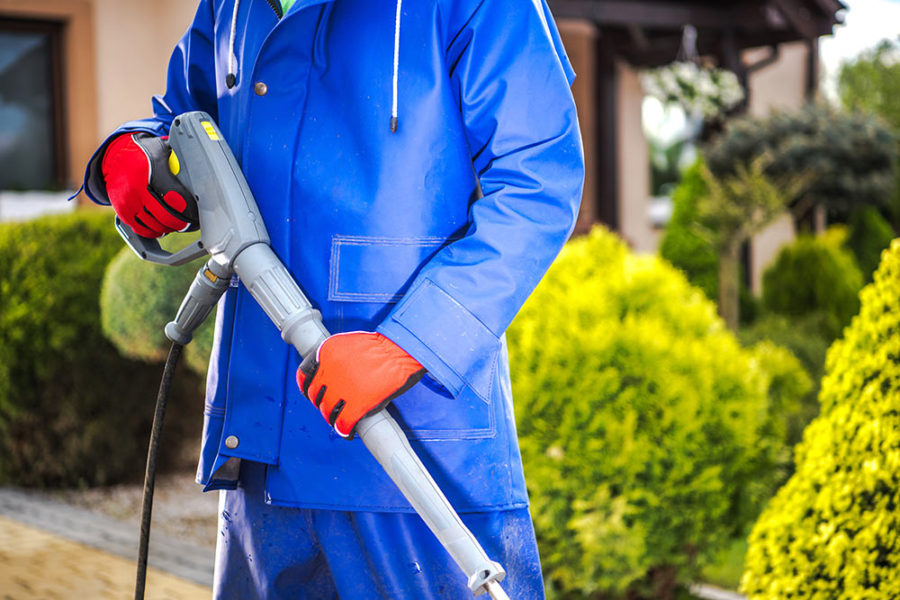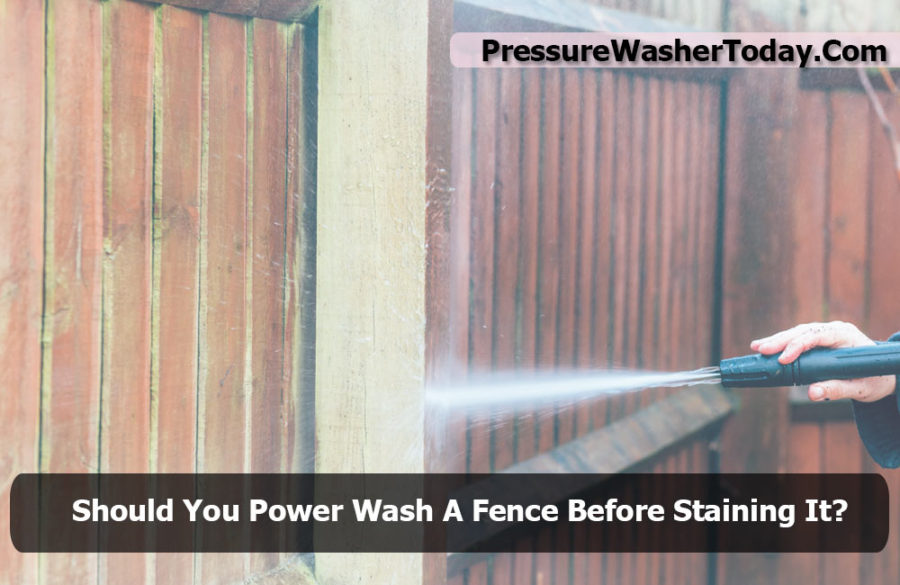Fences are an excellent option for homes. They help keep pets out of the yard, stop children from running into the streets and offer the privacy you need from neighbors. But, being exposed to elements 24/7 and 365 days per year can be a real strain on your fence. A pressure washer can turn back the clock and make that old wooden fence appear brand new. Here we discuss Wood Deck Power Washing and Fence Pressure Washing.
Table of Contents
1. Fence Pressure Washing
1. Wet
Make use of a tip that is recommended in the manual for your pressure washer. Clean a couple of boards or your fence using the lowest setting. Use the pressure washer’s wand securely with both hands, ensuring that the nozzle is kept at least three feet away from the surface (and check this recommended distance with your users’ manual). Start further away and then work your way in according to your needs, since getting any closer and the pressure can cause warping and indentations to the wood.
2. Hook Up the Water Supply
The first step for cleaning a fence before staining it using the pressure washer is hooking on the water supply to the pressurized washer. Next, get your hose and connect it to the water pressure cleaner’s water input.
3. Purchase An Electric Pressure Washer Or Not?
Gas-powered machines have more PSI ratings and can deliver higher Gallons of water per minute (GPM) than electric units. So, if you are brand new with pressure washers, a gas-powered pressure washer could have more power than the one you are familiar with.

2. Pressure Washer Safety
Follow and read the safety guidelines provided by the manufacturer for your pressure washer. The most important guidelines are:
- Learn how to shut off your pressure washer quickly, and then let it release the pressure.
- Use the pressure washer only when you are standing on a firm area with an excellent balance and solid footing.
- Do not leave a sprayer or wand in the open when your pressure washer is on.
- Always pay attention to where you are making the spray of your pressure washer.
- Never shoot a pressure washer, spray gun, or wand towards any animal, person, or plant.
- If you are using cleaning products, Always adhere to the manufacturer’s instructions.
There are some things to do to ensure that you do not harm your fence:
- Take care of any polluted areas using the help of a wire brush to take off the debris that has been stuck.
- The best option is to choose a nozzle with a degree angle recommended in your users’ manual for washing fences. Degrees determine pressure so that a 0-degree nozzle will provide the highest pressure. Nozzles are color-coded according to their pressure.
- Take a step away to the recommended distance by your users’ manual before starting the trial to avoid risk of injury.
- Make sure to use cold water because hot water could cause grain rise and premature degradation on your fencing. That’s why you shouldn’t use power Fence Pressure Washing (hot water), since hot pressure washers use heat, whereas pressure washers don’t.
3. Wood Deck Power Washing
Are you shocked by the condition that your deck is in? Do you notice that a mysterious “gunk” that has accumulated on your deck’s surfaces has begun inflicting damage to your deck’s gorgeous appearance? You may be tempted to solve the problem with a power wash onto your deck and then vigorously spray it. Still, power washers can do much more damage than benefit most decking materials.
4. Washing Detergent For The Pressure Washer
There may be a need for detergent in certain circumstances, such as cleaning up the tough dirt after a long and humid winter. When choosing a suitable detergent, we recommend looking at the label carefully. Many are general-purpose, but you will find some specially made for decking or wood specifically.

5. Problems When Power Washing A Deck
1. Deck Splintering
Decks made of wood are highly susceptible to severe damage when subjected to pressure washing. The pressure the washer puts on the deck’s surface can lead to splitting. Power washing can cause further damages and causes the split area to increase in size.
The effects of power washing are wooden decks and other decking materials of equal size, if not more. The impact of washing your decks at extreme pressure is a lot more severe for soft materials like PVC.
2. Fragmentation of Composite Deck
The washing of a deck with extreme pressure could result in severe damage. However, the damage is merely the result of the pressure washer cleaning off chips from the composite material. The most problematic scenario is when the companies that construct these decks do not offer warranties to composite decks that are exposed to pressure washing.
Conclusion
Deck washing is an easy and efficient method of taking care of your deck, protecting it from dirt or mould and gray. The most crucial aspect of effective deck washing is using a suitable pressure washer with the proper PSI, GPM, and nozzle techniques. In this way, you will perform a top-quality job that leaves minimal damage.
Fences made of wood can last for longer than 20 years, depending on the type of wood you select and the climate that you live in. Regularly cleaning and treating your fence with a sealer or stain can preserve the look and extend the life of the wall. You will be amazed at how beautiful and brand new your fence will appear once the dirt and grime have been removed.
Authors Bio: (Rohma Charlotte)
I have been writing about the benefits of pressure washing for over a year. I have articles on fence and deck power washing, and I have been in the industry for over fifteen years and have a lot of experience, so I know what my readers want to hear.

